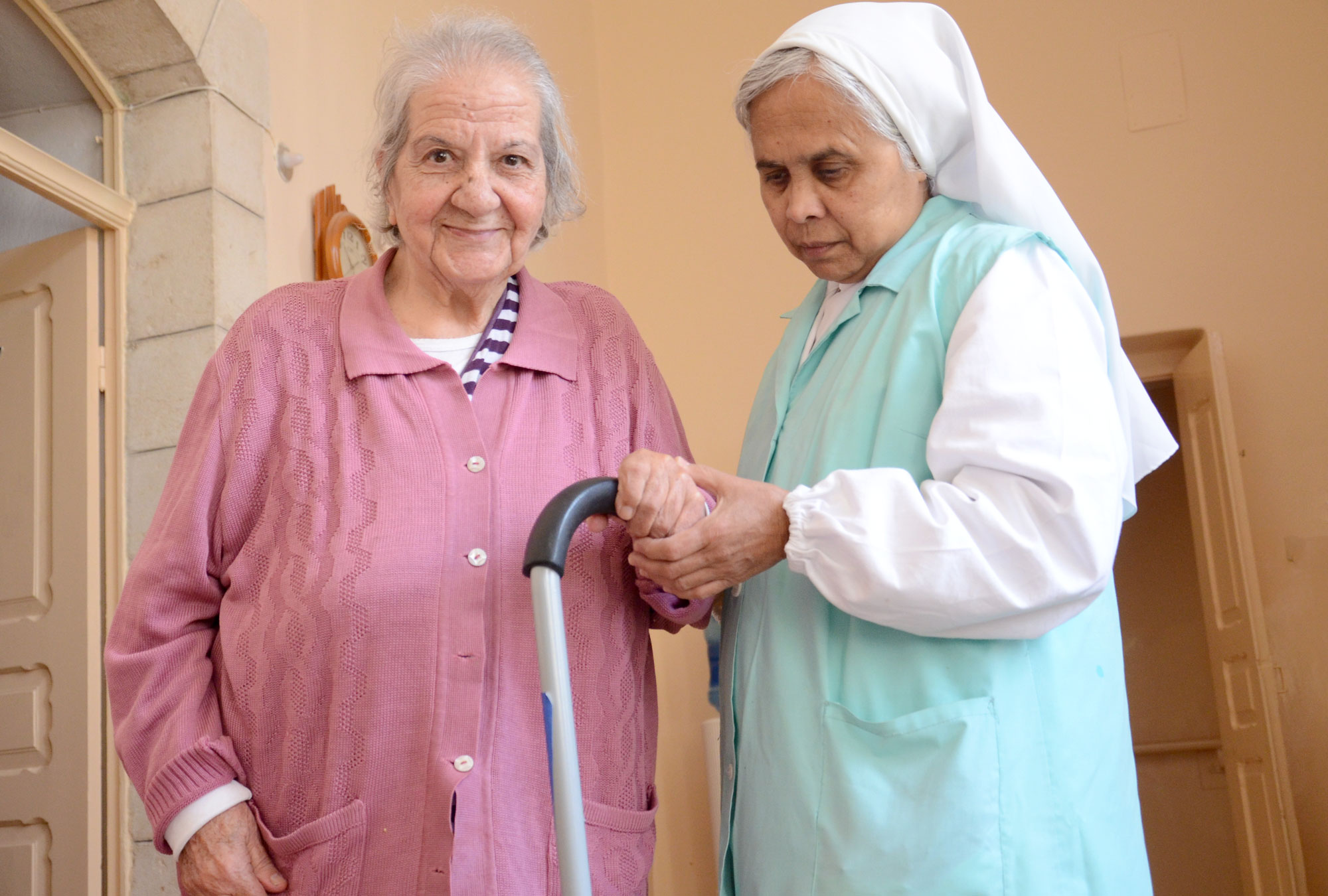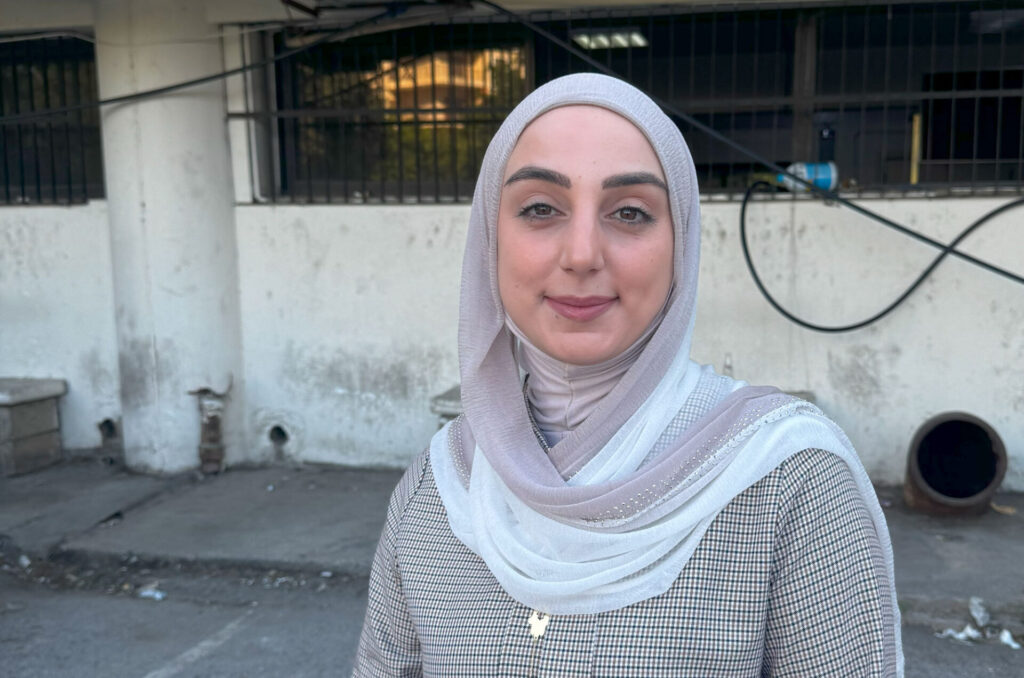Nov, 2013
Maliha Jweihan walks down the hallway of the hospital’s physical therapy department in Hebron with the help of a newly-donated walker. In her 70s, Maliha suffers from severe back and joint pains, which has kept her mostly housebound.
Many patients like Maliha cannot afford to rent or buy crutches or a walker to help recuperate from a fall or just move around more easily. Their immobility has negative effects on their physical and psychological well-being.
But, that challenge has been eased, thanks to AmeriCares’ donation of walkers, crutches and canes that Anera has delivered through its medical aid program to hospitals and clinics in the West Bank.
Munqeth Abu-Sneineh is a physiotherapist and vice president at the Hebron hospital’s department of physical therapy. Besides caring for hospital patients, he says the department also treats 15-20 out-patients a day. “We often run short of walking aids because our hospital has a limited supply. They’re indispensable and we always need more to handle all our patients’ needs and to replace worn-out ones.”
Maliha is delighted with her new walker. “It is so light and has wheels, which makes it easier to maneuver,” she says. “God willing, as soon as I get better with my doctor’s help and my new walker, I hope to make a pilgrimage to Mecca.”
Maliha echoes the relief of many patients across the West Bank who are benefiting from the new supply of donated walking aids.
In Bethlehem, many of the 30 elderly women living at a charitable shelter are delighted with their newfound mobility. “All of these women are poverty-stricken,” explains the society’s secretary Anton Shukri Dabdoub. “They have nowhere else to turn and many of their families cannot care for them anymore.”
The efforts to care for the women, however, have strained the charity’s finances. Anera has eased some of that burden, thanks to this AmeriCares’ donation of mobility aids, which the society could not otherwise afford.
Jamila Al-Araj says her new crutches make it easier for her to get out of bed and move around the building by herself. The 84-year-old suffers from Parkinsons’ disease and finds it difficult to walk unaided.
“Immobility causes painful, sometimes irreversible, consequences for elderly people,” Dabdoub explains. “If they don’t move around, they get bed sores, muscle cramps and problems with their spines and joints.”
Jamila and her friends now can safely maneuver the hallways on their own and access the porch outside where they enjoy a morning cup of tea and conversation while basking in the sunshine.
Dabdoub smiles: “We are grateful for such donations. It is profoundly reassuring for us to know that our friends’ and partners’ belief in our work can give us the strength and the tools to help those in need.”




